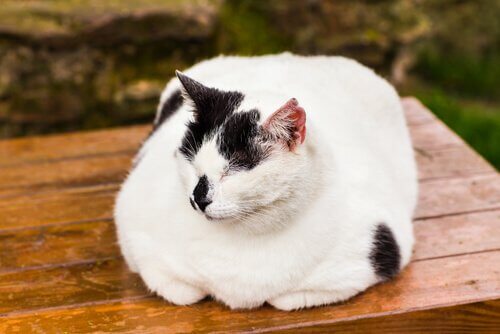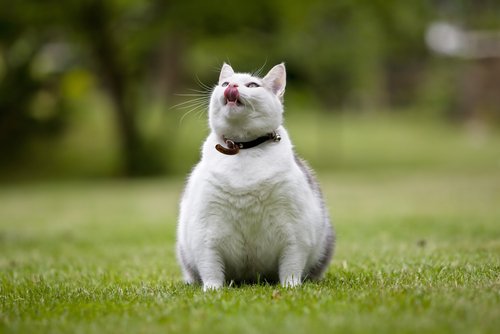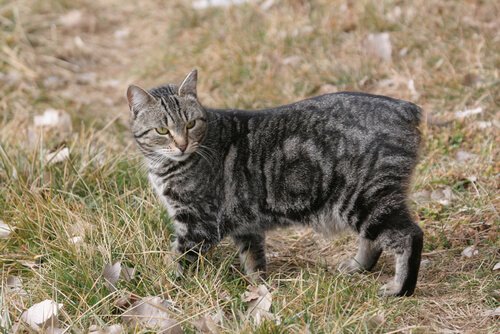Things Owners Should Know about Obese Cats

Obesity is on the rise today and our pets aren’t exempt from it. In fact, this problem is especially common in cats and can cause serious health problems. However, many owners have taken advantage of their pet’s obesity to gain followers on social media. Unfortunately, they’re overlooking the serious consequences of having obese cats.
Obese cats aren’t funny, they’re at risk
Like we’ve said before, obesity is linked to very serious health problems. While it may seem very funny to see obese cats all over social media, you have to remember that these cats have a high chance of developing a serious illness.
These include arthritis, liver conditions, and inflammatory or intestinal problems. All are chronic and will reduce the feline’s quality of life.
Many owners don’t know that their cat has exceeded its limits

Many owners don’t know that their cat is obese or that he has exceeded his limits. Or, sometimes they ignore the problem because they don’t think it’s that big a deal. However, it’s important for them to keep an eye on their pet and on his weight.
Remember, it’s much easier to prevent your cat from becoming obese than to make an obese cat lose weight.
You can tell a cat is obese just by looking at him
Cats have an average weight of between 5.5 and 12 pounds, so any cat past that limit is obese. You can tell if your cat is obese by looking at him from above.
His body should have an hourglass shape that narrows at his ribs. However, if he looks more like a tube, or is wider at his ribs, he’s obese.
Poor nutrition and sedentary lifestyle
We already know that cats aren’t as active as dogs, but that’s why you have to devote some time to playing with them and making them run around. If they get too used to a sedentary lifestyle, then they’ll have problems later on.
Don’t give your pet more food than he needs, and don’t feed him anything that’s not specially made for cats. Always follow your veterinarian’s guidelines in regards to your cat’s diet.
Carbohydrates are also dangerous for cats
Cat food is usually higher in carbohydrates than it needs to be. Although this isn’t usually a problem, if you have an obese cat that has trouble losing weight then it’s best to ask your vet what diet is best for him.
Don’t give them food when they beg
Cats are manipulative by nature. Doesn’t everyone remember Puss in Boots from Shrek? The character is just an exaggeration of what cats actually do.
When it comes to food, cats may continuously beg as if they were starving. However, that’s not the case. If you give in to his begging, he’ll never be able to lose weight.
Cats need exercise

There have always been lots of questions surrounding this topic. Some people think that dogs need to go out three times a day to exercise and cats don’t. That’s not true at all. A sedentary animal, regardless of its species, needs exercise.
The best way to encourage your cat to exercise is to put his food as far away from his bed as possible. Or, you could also put it in a high place so he has to jump in order to get to it. If you have a yard or a garden, give him access to it so he can come and go as he pleases.
Having an obese cat is a problem, both for him and for you. Therefore, you need to watch your cat’s weight and make sure he’s getting enough exercise. That’s the only way you’ll be able to ensure that your pet is healthy and fit.